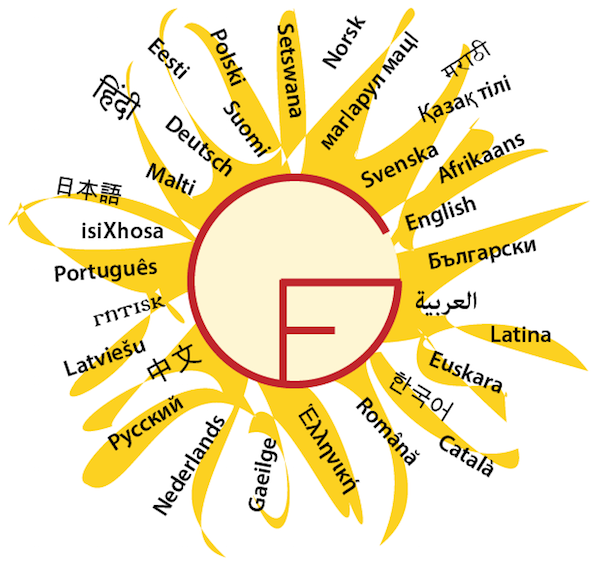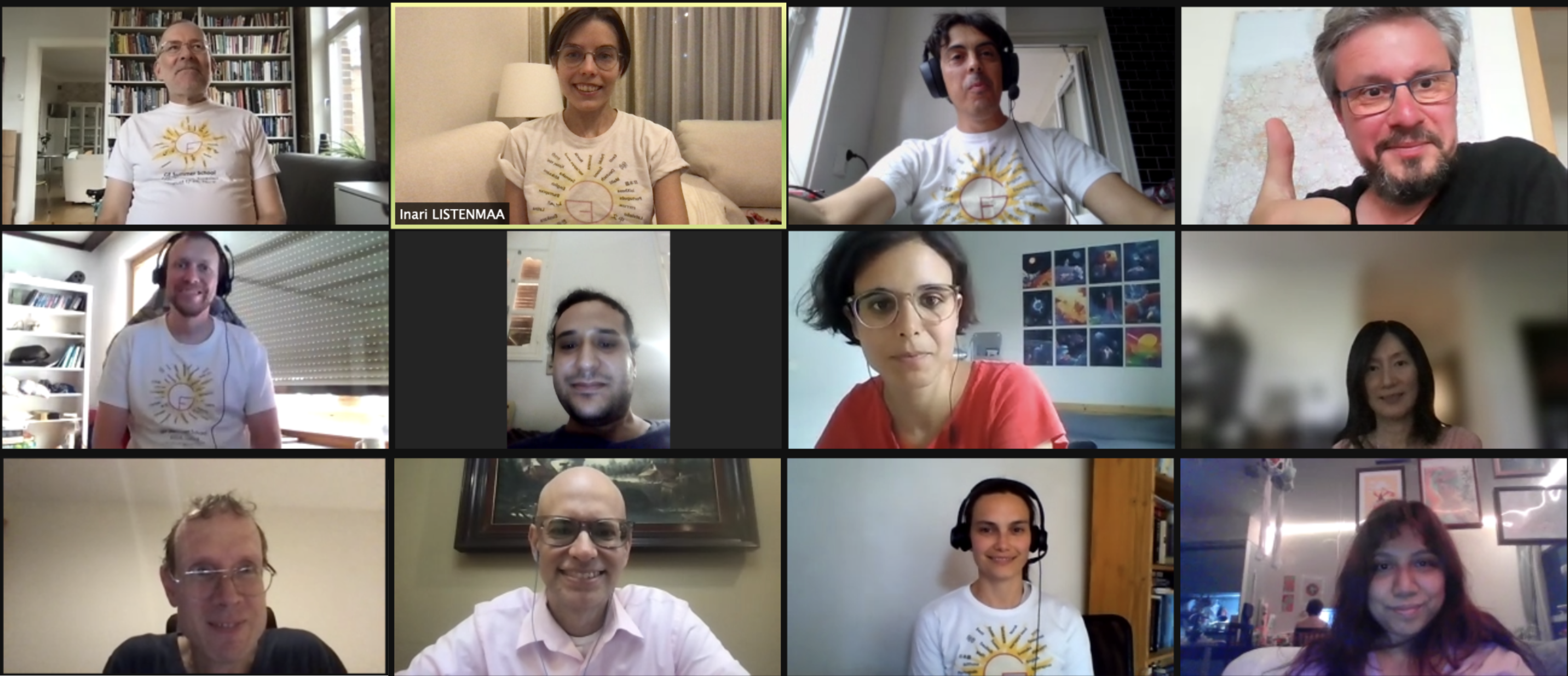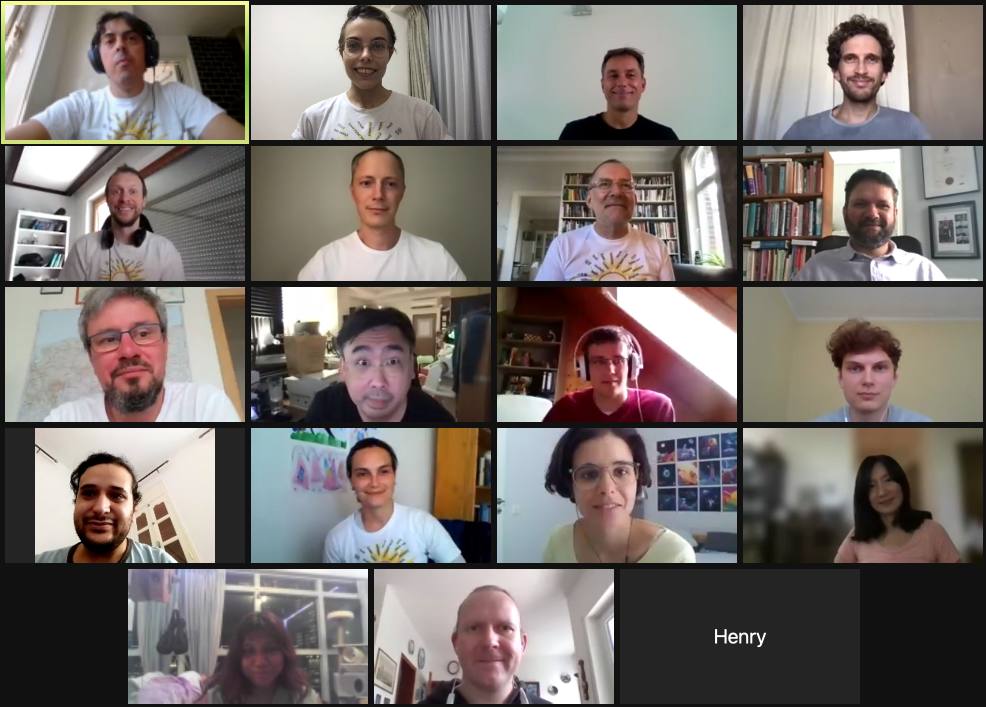
The GF Resource Grammar Library (RGL) implements the morphology (inflection) and basic syntax (phrase structure) of more than 30 languages: Afrikaans, Bulgarian, Catalan, Chinese, Danish, Dutch, English, Estonian, Finnish, French, German, Greek, Hindi, Interlingua, Japanese, Italian, Latvian, Maltese, Mongolian, Nepali, Norwegian bokmål, Nynorsk, Persian, Polish, Punjabi, Romanian, Russian, Sindhi, Spanish, Swedish, Thai, and Urdu. These resources are freely available as open-source software.
We are constantly welcoming new languages, especially from new language families. Learn more at the RGL status page. The summer school is an excellent place to get started with a new language.
A recent Google TechTalk gives an overview of the GF technology and its many applications:
You will find the GF book a very good companion to your studies (available also as an e-book). However, the book is not a requirement for successful participation in the summer school.
The summer school is co-organised by Singapore Management University's Centre for Computational Law. The interests of the research centre lie at the intersection of logical formalisation, knowledge representation and natural language generation.
Our second theme is Abstract Wikipedia: an effort in multilingual natural language generation at a large scale, targeting a diverse set of languages and language families.
The special themes are present in two ways:
The summer school is pefectly suitable for a student who is interested in other aspects of grammar engineering.
GitHub repository for the Summer School material, such as slides and code: github.com/GrammaticalFramework/gfss-2021
Recordings of the all the talks given during the Summer School are available here: Lecture Recordings on YouTube
| Name | Affiliation | Topic |
| Aarne Ranta | University of Gothenburg Digital Grammars |
GF tutorial, GF-UD |
| Alexandre Rademaker | IBM Research | HPSG Portuguese Grammar based on the grammar MATRIX |
| Arianna Masciolini | Digital Grammars | Concept alignment for multilingual machine translation |
| Denny Vrandečić | Wikimedia | Abstract Wikipedia |
| Inari Listenmaa | Singapore Management University Digital Grammars |
GF tutorial; various |
| Jan Frederik Schaefer | Friedrich–Alexander University | Prototyping natural language understanding with GF: Adding Semantics and Inference |
| John J. Camilleri | Digital Grammars | Linearisation-only PGF |
| Krasimir Angelov | Chalmers Univ. of Technology Digital Grammars |
Application grammars, lexical semantics, sense disambiguation |
| Laurette Marais | Meraka Institute | Application grammars in resource scarce environment; Zulu resource grammar |
| Laurette Pretorius | University of South Africa | Zulu resource grammar |
| Leonel Figueiredo de Alencar | Federal University of Ceará | Nheengatu grammar |
| Meng Wong | Singapore Management University Legalese |
Controlled Natural Language in computational law |
| Michal Měchura | Masaryk University | Re-inventing the phrasebook with rule-based language technology |
| Warrick Macmillan | University of Gothenburg | Modeling Formal Languages in GF |
| Žygimantas Medelis | Tokenmill | Accelerated Text: a low code data to text platform and how it works with GF |
The summer school will take place in Singapore, home to Singapore Management University.
Because of the Covid-19 pandemic, it is possible to participate in the summer school fully online. Read more in Logistics.
We aim to make the summer school as smooth as possible for people on different time zones.
Other than the hybrid online/offline nature, the program of the summer school will be like in the previous years. The first week is a GF tutorial, and the second week is more specialised tracks.
The first week's talks will be given to a live audience in Singapore at 9-12 SGT, and streamed live—if you're in Asia, or otherwise awake at this time, you can follow them live and ask questions on Zoom.
On the first day of the summer school, Aarne Ranta will give a duplicate of the morning talk at 20 SGT, which is 14 CEST -- this is afternoon in Europe and Africa, and morning in most of the Americas. We will evaluate the format after the first lecture and decide if and how to do rest of the duplicate talks. If you would like to participate, but can't make it on the first day, please contact the organisers.
Ms Raven Zhang (Centre Administrator at CCLAW)
Email: ravenzhang@smu.edu.sg
HP: 96458215
Ms Regina Cheong (Researcher at CCLAW)
Email: reginacheong@smu.edu.sg
HP: 81888420
Dr Inari Listenmaa
Email: ilistenmaa@smu.edu.sg
HP: 82119525
Mr Tristan Koh
Email: tristankoh@smu.edu.sg
HP: 96219123

